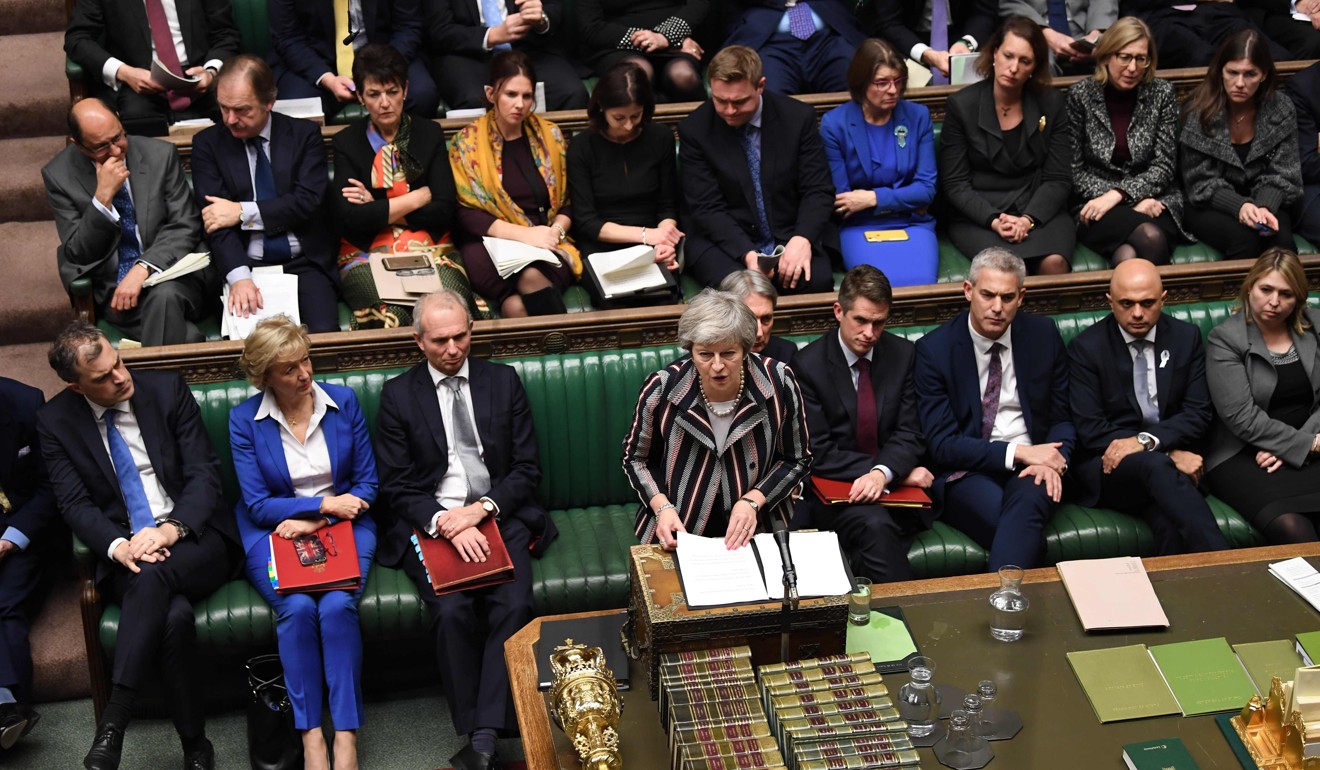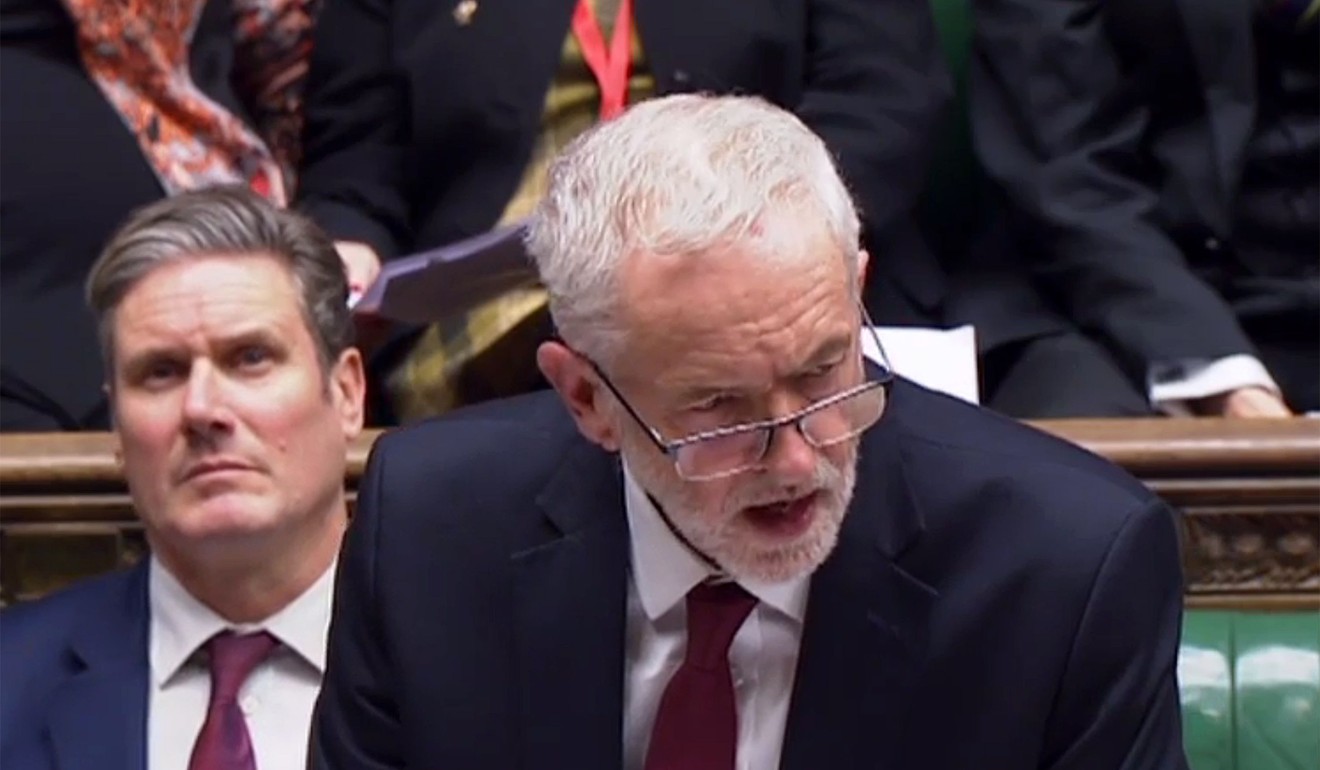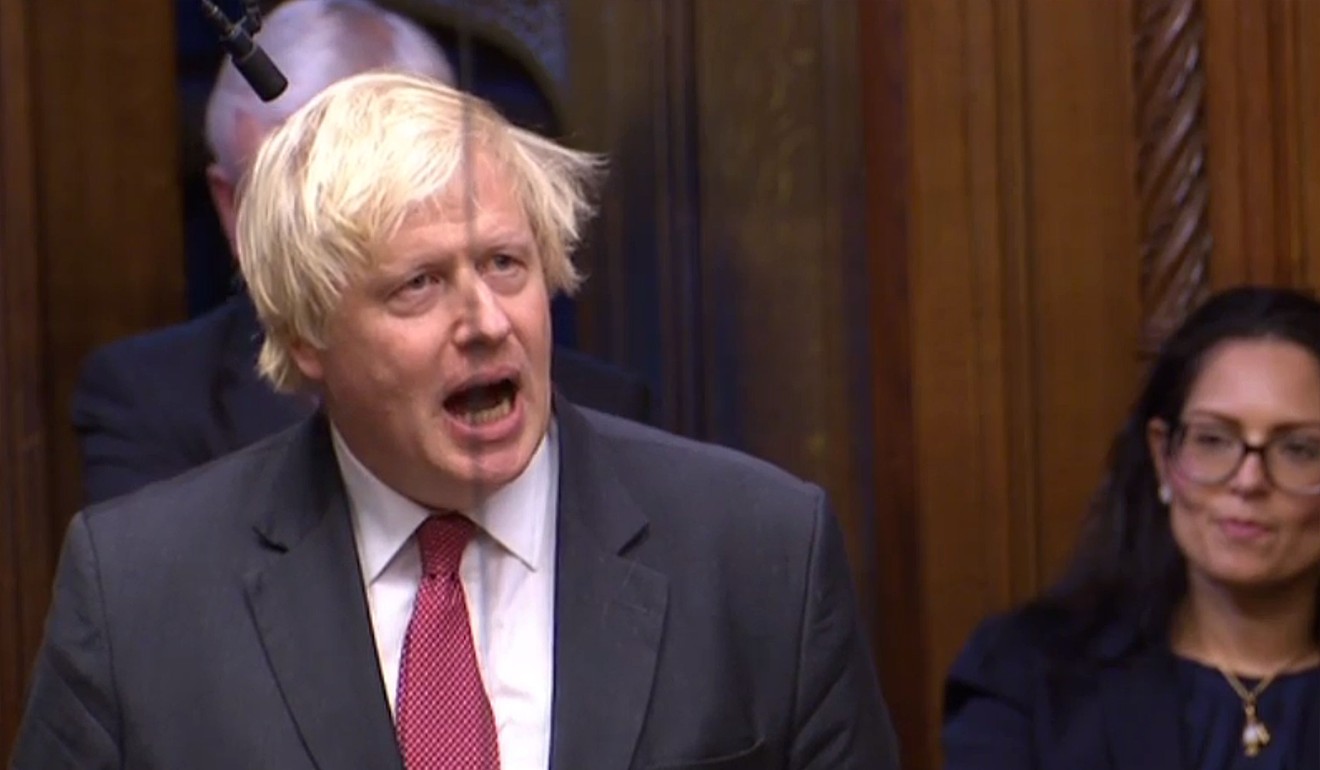
UK PM Theresa May fights to save a Brexit deal that Donald Trump says is ‘great’ for EU
- Scores of legislators – from both the opposition and May’s governing Conservative Party – have vowed to oppose her Brexit deal
- Rejection would plunge Britain into a political crisis and potential financial turmoil
Securing the unanimous approval of 27 European heads of state for a Brexit deal was the easy part.
On Monday, British Prime Minister Theresa May turned to a far greater challenge: winning support from sceptical British lawmakers and their constituents.
A parliamentary vote on the deal is scheduled for December 11, with the hope that Britain can leave the European Union in a “smooth and orderly way” in March.
But the maths doesn’t appear to be on May’s side. She needs 318 votes for the deal to pass. By many estimates, she’s more than 60 votes short.
“The chances are currently around zero, to put it bluntly,” said Jonathan Tonge, a politics professor at the University of Liverpool.
He said passage would require the “biggest whipping operation you’ve ever seen in the Conservative Party”.
And even if the resistance within May’s own party melts away, she would need support from some opposition lawmakers.
The Northern Ireland Democratic Unionist party, which props up May’s minority government, is against the deal.

May is planning to make her case in an election-style campaign through England, Northern Ireland, Scotland and Wales over the next two weeks. She previewed her stump speech in the parliament on Monday.
She said the Brexit withdrawal deal, painstakingly negotiated over more than 17 months, was a good deal and, crucially, it was the only one on the table.
“There is not a better deal available,” she told lawmakers, adding that EU leaders have also stressed the point.
What if UK MPs reject Theresa May’s Brexit deal?
“We can back this deal, deliver on the vote of the referendum, and move on to building a brighter future of opportunity and prosperity for all our people,” she said.
Or, she said, lawmakers can reject the deal and “go back to square one,” exposing Britain “to more division and more uncertainty, with all the risks that will entail.”
Scores of lawmakers stood to denounce the plan.

Jeremy Corbyn, leader of the opposition Labour Party, told the parliament that the “botched” Brexit deal was “the worst of all worlds – no say over future rules and no certainty for the future”.
He cited one estimate that the British economy would shrink by 3.9 per cent with this deal in place.
“Ploughing on is not stoic,” Corbyn added.
“It’s an act of national self-harm.”
Analysis: Theresa May’s unloved Brexit plan is much like the PM herself
Boris Johnson, a Conservative member of Parliament and leading Brexiteer who resigned as May’s Foreign Secretary in July, said that to call May’s plan “unsatisfactory” would be an understatement.
“It’s very hard to see how this deal can provide certainty to business or to anyone else,” he said.
May’s half-in, half-out compromise divorce deal has angered “leavers” and “remainers” alike. Brexiteers want a clean break from the European Union, and pro-Europeans think the deal is worse than the status quo.
In an intervention that didn’t do May any favours, US President Trump told reporters that her Brexit deal “sounds like a great deal for the EU”.
He also said that it could hinder a trade deal between the United States and Britain.
“Right now, as the deal stands, she may not – they may not – be able to trade with the US. And I don’t think they want that at all, that would be a very big negative for the deal,” said Trump, who has previously said Brexit is “a fantastic thing”.
In a statement, Downing Street responded that “the political declaration we have agreed with the EU is very clear we will have an independent trade policy so that Britain can sign trade deals with countries around the world – including with the US”.
“We have already been laying the groundwork for an ambitious agreement with the US through our joint working groups, which have met five times so far,” they added.
If the UK parliament votes down this version of Brexit, Britain faces the possibility of leaving the EU in March with no deal in place, a “doomsday scenario” that could result in grounded aeroplanes, medicine shortages and economic havoc.

Most political analysts predict that such a fate would be avoided. If May’s deal is struck down, and if market chaos ensues, lawmakers might be willing to vote for it in a second go-around.
Analysts draw parallels with the Troubled Asset Relief Programme, or TARP.
The US Congress initially rejected a bank bailout plan but later passed it with a few amendments after markets panicked.
Mujtaba Rahman, an analyst with Eurasia Group, said what happens next would depend on the size of May’s defeat.
In a briefing note, he predicted that if she loses the December 11 vote by a small margin, she would seek changes from the EU and aim for a second parliamentary vote, likely in January.
But a “heavy defeat” would increase the odds of other outcomes. Britain might work with the EU on a “managed no-deal” scenario or get European approval to extend the Brexit deadline beyond March. Some lawmakers are discussing a “Norway Plus” option that would see Britain join the European Free Trade Association.
A second referendum in Britain or a general election would also be possible.
Tonge said that if the proposal doesn’t get the support of the parliament, May’s credibility would be in tatters because she is “so wedded to the deal”.
But May has proven time and again that she has staying power. She survived an attempted coup last week by Eurosceptics who failed, at least for the moment, to get enough lawmakers to launch a vote of confidence against her.
When asked in a recent radio phone-in if she would resign if her deal wasn’t passed, May dodged the question.
“I’m focused on actually ensuring that we do get this deal through Parliament because I believe this is absolutely the right deal for the UK,” she said.

